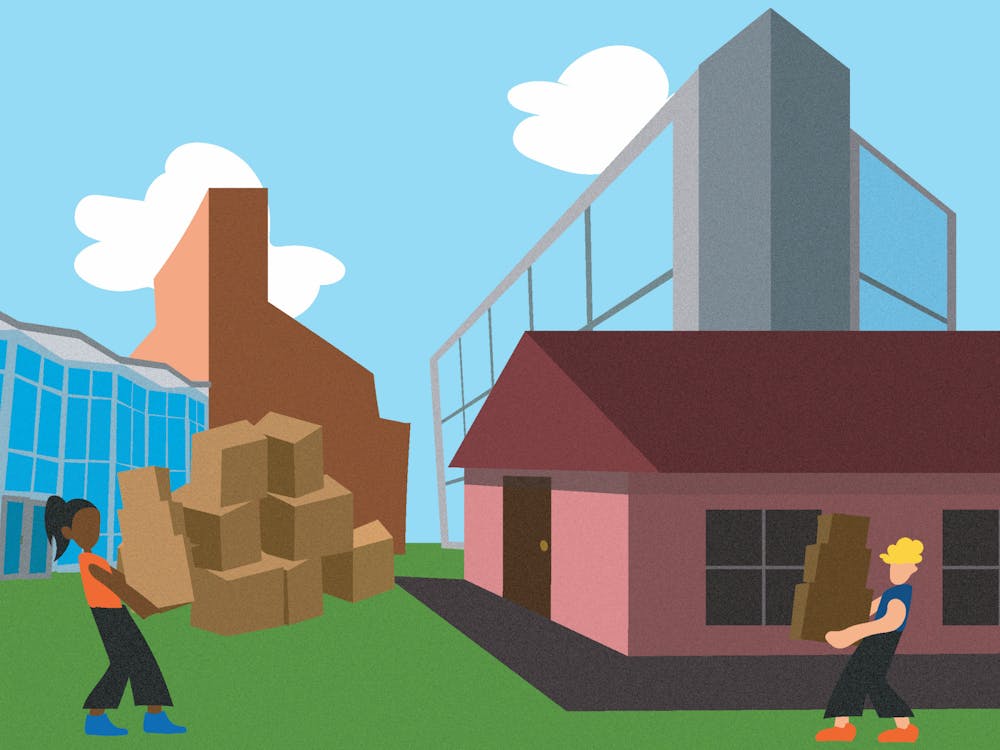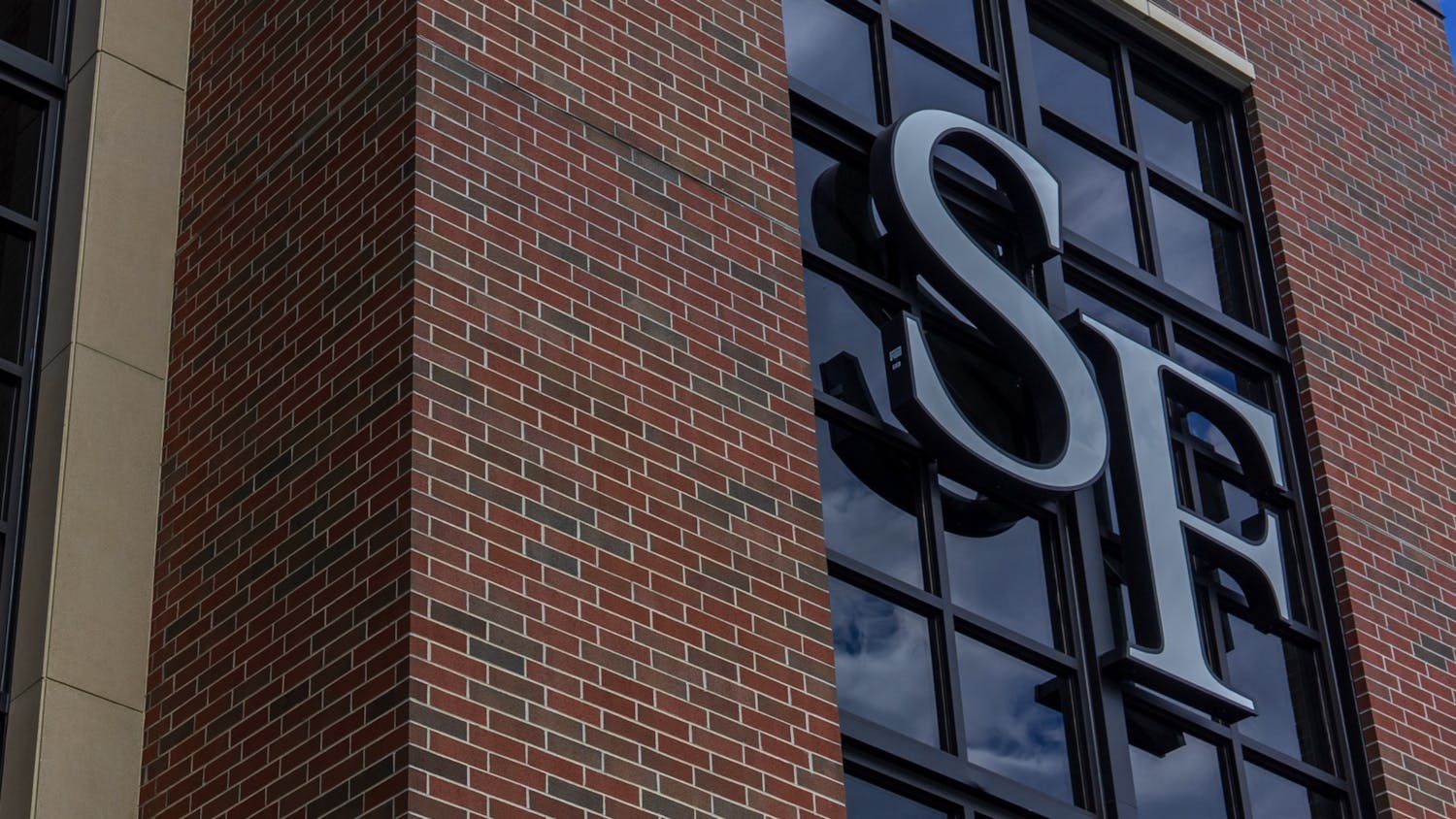Jill Dumas was born and raised in Gainesville. As a kid, the city was not much more than Cotton’s Mini Mart, the Southern Showplace Area and Rosie’s Bar. Now, the 46-year-old Gainesville realtor and homeowner contrasts today’s city with that of the past.
Dumas noticed large chain corporations like Walmart and Publix taking over isn’t the only change the city is facing; it’s also facing rising interest rates, causing an affordable housing crisis for potential homebuyers.
The average cost of living in Gainesville is 2% higher than the national average, while the housing cost is 12% higher than the national average.
Gainesville residents aren’t alone as living in Florida can be expensive, with Florida’s more heavily populated cities like Miami sitting 21% above the national average cost of living, or Orlando, which sits at 5% above the national average.
However, Tampa, a city of nearly 400,000 people, averages a cost of living no different than the national average, according to the United States Census Bureau.
Dumas believes the housing crisis is due to high prices and the emergence of Airbnbs, she said.
“I had friends renting on the edge of the Duck Pond, not what I would call a high price neighborhood, for $725, and then starting to come out of COVID-19 it went up to $925, and next thing you know, it’s $1,200.” Dumas said. “Nobody’s income went up $500 in that time.”
Short-term rental units through companies like Airbnb have increased after COVID-19. Alachua County currently averages 2,500 active short-term rental units, which increased by 36.4% from 2022.
“One of the things I’ve seen too is with Airbnb, investors take these spaces like a little apartment, a carriage house, a studio — what was affordable housing for people,” Dumas said. “What I see happen a lot is that some landlords or investors raise rent so high that people can’t afford it. Those people move out and they put in an Airbnb.”
These individuals are then forced to relocate to west Gainesville, a seemingly cheaper and less populated area. However, others are doing the same to build the “newest and biggest,” corporation to cash in, Dumas said.
This practice, she said, only takes away jobs and income that could be put toward those seeking affordable housing.
“We can’t have Gainesville if we don’t have people to work at the gas stations and people to work at the restaurants.” Dumas said.
Along with Dumas, Clay Kears, a 46-year-old Gainesville resident and married father of two, said the changing costs left his family with little disposable income.
“The cost of living definitely impacts our family. Our income is currently enough to make ends meet, whereas before the increase we had extra to use at our disposal,” Kears said.
Gainesville has a population of around 140,000, while Newberry, an adjacent city west of Gainesville, with a population of close to 10,000, doesn’t suffer the same high costs of living, with 7.8% below the national average.
Gainesville needs to be creative to tackle the housing crisis, said Newberry Mayor Jordan Marlowe.
“You got to be willing to think outside the box. You got to be willing to think creatively. You got to be willing to partner with your business residents on these things and not always try to dictate or legislate,” Marlowe said.
Newberry prioritizes low taxes, utility rates and electric rates, which are among the lowest in the county, Marlowe said.
The city also combats the housing crisis by giving back housing deposits after someone’s first move-in as long as they have good credit and paid their bills on time for a year prior, Marlowe said.
In doing so, county workers are able to partner with the residents to give the money back, resulting in the individual spending this money within the city, instead of it sitting in an account, he said.
“This took some courage by the commission to be willing to do that. It is certainly a risk that has paid off,” Marlowe said.
Marlowe credits the difference in Gainesville and Newberry to a lack of trust between the Gainesville community and its politicians.
He pointed to the Gainesville City Comission’s vote against exclusionary zoning in February 2023 as an error. While time-consuming and costly, lifting restrictions would have benefited the community, Marlowe said.
Bryan Eastman, Gainesville City Commissioner who originally proposed this new zoning program for the city, said after meeting with various community groups within Gainesville and hearing feedback, the city commission voted to move forward with the program.
It will be reviewed for final approval to be implemented this spring, Eastman said.
The program seeks to remove the current restriction of 0.28 acres to have a single-family home, allowing a larger number of homes to be built.
“When you force people to have large yards, you end up getting much larger houses, and forcing people to have large yards is going to raise the price of homes,” he said.
Gainesville has been affordable in the past, allowing a multitude of artists and musicians to thrive here, which makes the city special, he said. “We have to do something about it,” Eastman said. “The cost of living in our city matters and it’s something that we should all be worried about.”
With costs of single family homes going from $200,000 in 2018 to $400,000, this plan is just one step in trying to solve this housing crisis.
“Homeownership built the American middle class, and if we don’t do something to try to bring down the cost of this, it’s only going to be landlords and investment companies that are renting,” he said.
Anne Ray, a member of the Affordable Housing Committee for Alachua County, said the gap of housing costs and income has changed the realistic amount that individuals can pay for housing.
“There’s a long standing and recently very much growing gap between what different jobs pay and what people can afford to pay for housing. Housing costs have grown much larger and much more quickly than wages,” Ray said.
While this gap continues to grow and housing costs continue to rise, this is the first step in trying to solve the affordable housing problem. The city also has to figure out how to make apartments and small-scale multifamily housing more affordable, City Commissioner Eastman said.
Contact Kairi Lowery @klowery@alligator.org. Follow her on X @kairiloweryy.
Kairi Lowery is a third-year journalism major and a metro general assignment reporter for The Alligator. When she's not writing you can find her lounging on the beach with a book or collecting vinyls.






